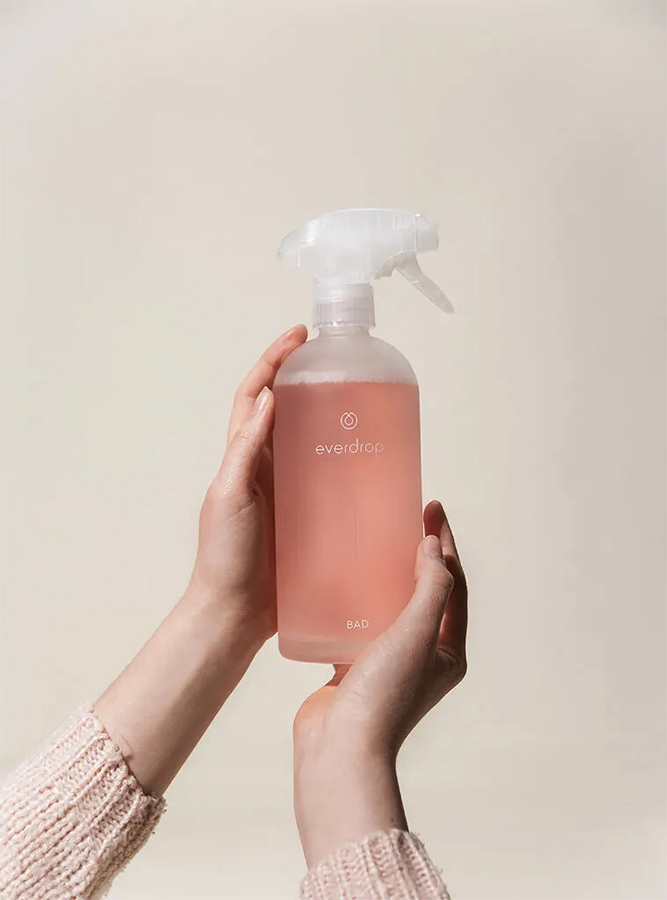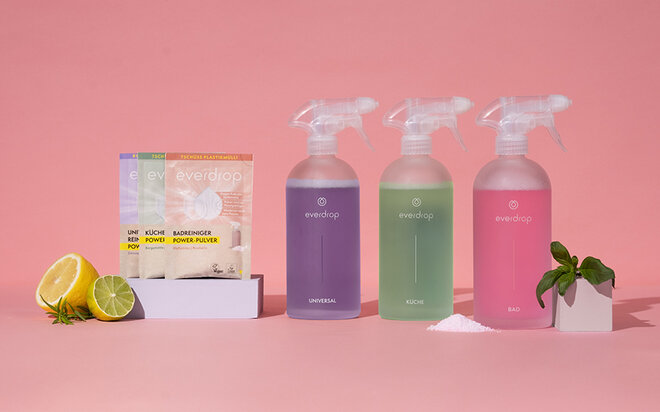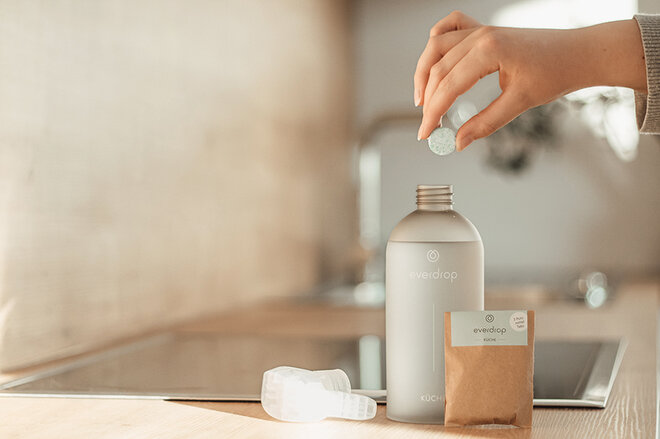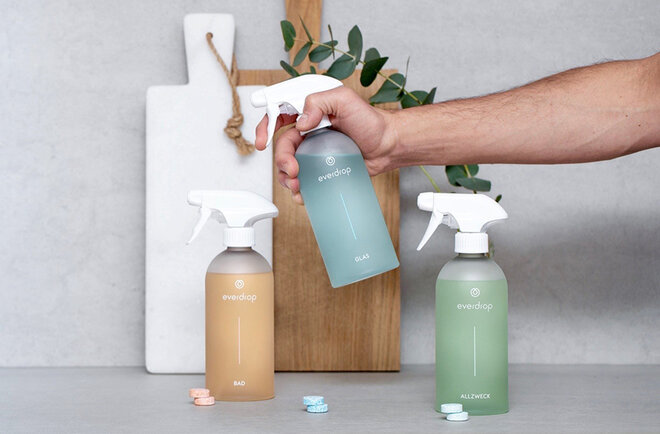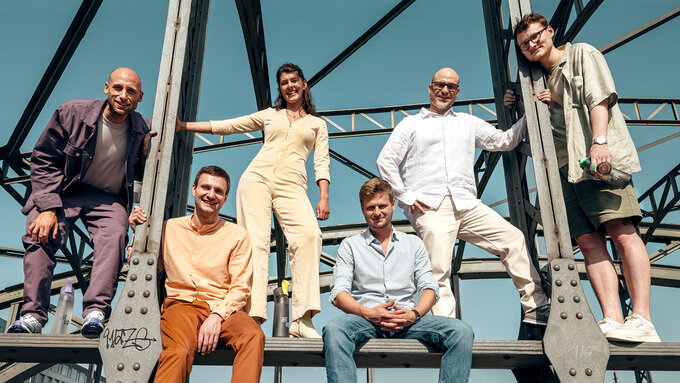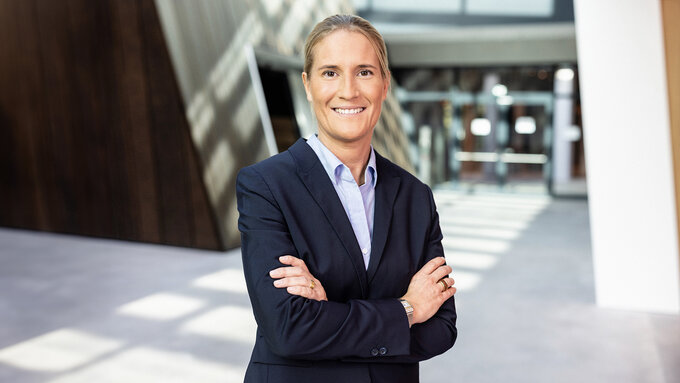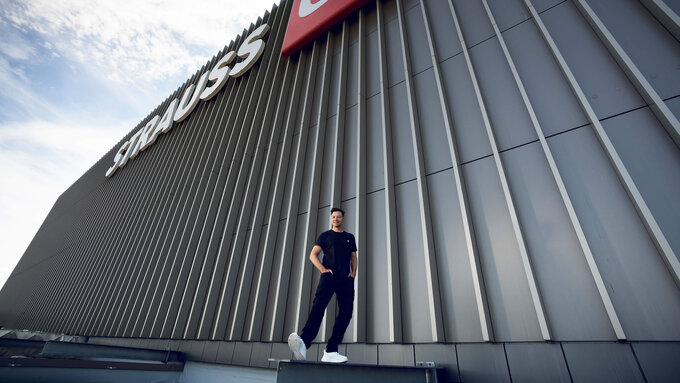How Everdrop Turns Sustainability Into Brand Strategy
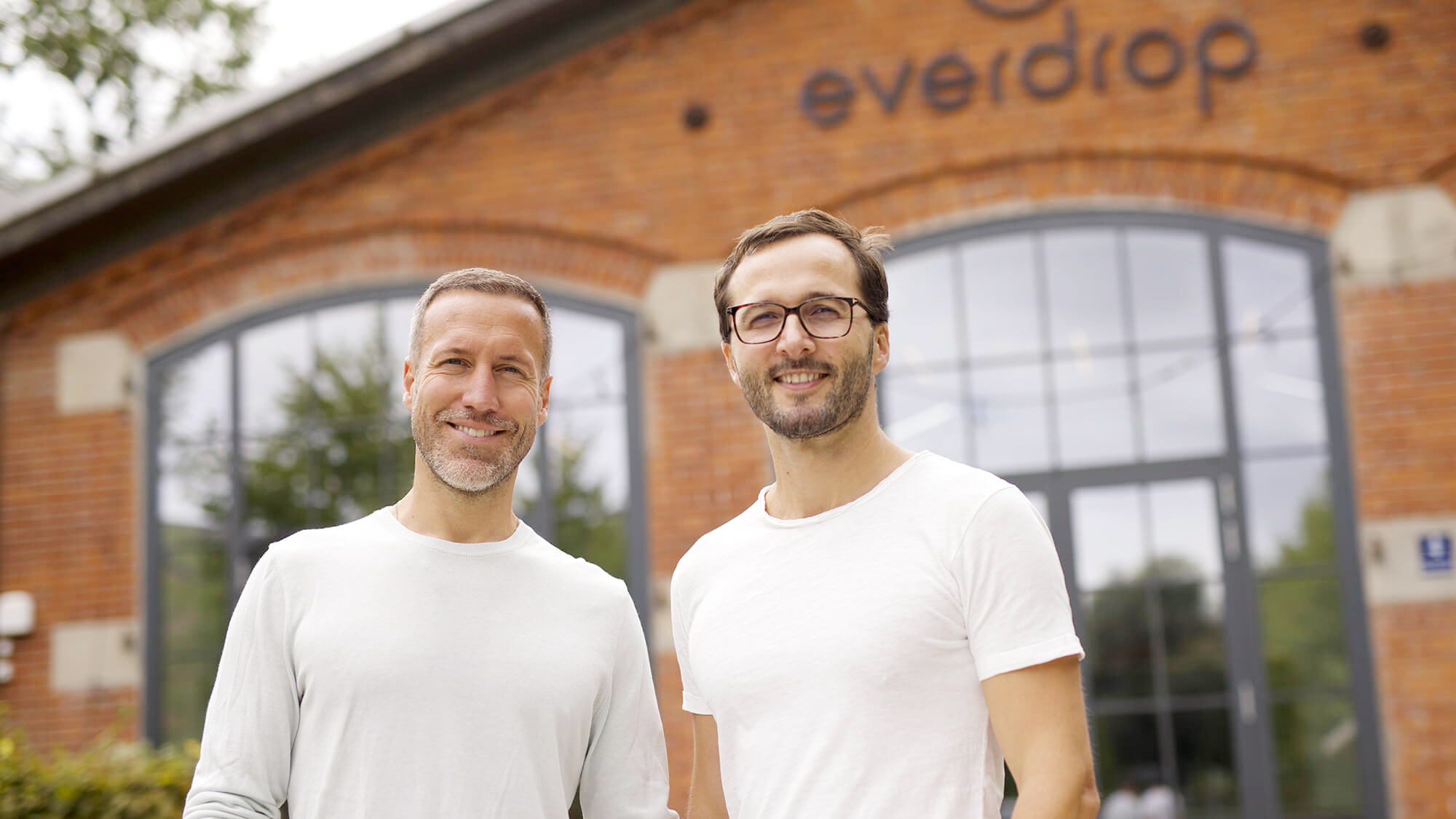

Jury Statement
A real eye-catcher in the category of household cleaning and care products: everdrop. With their innovative, plastic-free and environmentally friendly cleaning products, they offer a concrete solution to a very specific problem: they give consumers the opportunity to reduce pollution through the product. everdrop has established sustainability not only as a product feature, but as an integral part of the overall brand identity, which clearly differentiates them in a highly competitive market. The intention of the brand is consistently reflected in the entire brand management: the product range, design and brand image are well thought out and of a very high standard in all areas. Clear, authentic communication raises awareness of environmental issues and actively involves customers in the mission to leave a positive ecological footprint.
Interview mit Christian Becker and David Löwe
The first product from everdrop was cleaning tabs that can be dissolved at home in a spray bottle with water. How did you come up with the idea?
David Löwe: In the fall of 2019, my co-founders and I were looking for ways to make everyday life a bit more sustainable. We looked around our homes, and the problem that caught our eye is probably familiar to everyone: the cleaning supplies cabinet full of single-use plastic bottles. Not only do they create unnecessary waste, but they are also often aesthetically unappealing. That‘s how we came up with the idea of offering high-quality cleaners in stylish bottles that can be refilled at home, saving a lot of single-use plastic. The concept is simple: water plus a tab – and the cleaner is ready!
You were not the first to have this idea, but you have become one of the most successful. How did you approach brand differentiation, and what do you prioritize?
Christian Becker: That‘s right. A manufacturer had already developed the tabs in the 1980s, but no one wanted them back then. Our approach is to bridge the gap between more sustainable concepts and a lifestyle that‘s attractive to a broader audience. Our unique selling point – tab or powder refill products with reusable, stylish, and minimalist bottles – has set new sustainable standards in the industry that more and more competitors are adopting. Our products completely avoid single-use plastic and unnecessary chemicals, reducing CO2 emissions during transport by up to 97 percent. This concept makes our products significantly more sustainable in the long run than conventional products. One of our principles is ‚We treat our products like software.‘ We continuously optimize our products based on customer feedback and with the help of our own research and development department. While traditional companies have focused on improving the cleaning performance of their products for decades, it is important to us to make each new version more powerful and more ecological. The best proof that we are succeeding is the Stiftung Warentest (editor’s note: a German consumer organisation and foundation involved in investigating and comparing goods and services in an unbiased way) victory of our plastic-free dishwasher tabs.
How important is product design to you?
David Löwe: Very important! It is essential for us to make sustainability accessible to a broad audience without making it feel too „eco“. This lowers the barrier to engaging with sustainable concepts. Our goal is to enable as many people as possible to lead a more sustainable lifestyle. We achieve this through our environmentally friendly yet powerful products and the appealing minimalist aesthetic of our packaging.
How do you integrate the principles of Circular Design into the development and production of your products?
Christian Becker: Circular Design plays a major role in our refill principle. Our cleaner bottles are not used just once; we enable customers to easily refill them at home. We also provide replacement parts for spray heads or dispensers, so the bottle doesn’t need to be discarded due to wear. When designing the bottles, we ensure they are made from recycled materials whenever possible and are durable enough to be used for many years.
What challenges and opportunities do you see in implementing Circular Design in your company and the industry as a whole?
Christian Becker: The biggest challenge for us right now is the overregulation by the EU and individual countries, as many recycled materials cannot be used in cosmetics, for example, because they are not 100% uniform in composition.
What marketing strategy have you pursued, and which marketing channels do you use?
David Löwe: The household cleaning segment is probably one of the most competitive areas. Given how many brands invest nine-figure sums annually in marketing measures, you have little chance in traditional media. We try to specifically target the generation that is vocally advocating for sustainability in digital media. This has almost made us go viral. Meta-advertising and influencers have helped us establish ourselves as a D2C brand. Since we have a somewhat explanatory product,
video formats, and influencers can provide a lot of educational work.
Christian Becker: We are currently undergoing two important transformation processes to shape the future of everdrop: we have evolved from a purely D2C brand to an omnichannel brand, with our products now also available in retail and the product portfolio expanding. We are also entering new markets abroad, most recently the Netherlands, driving internationalization.
Your company is on an expansion course AND you were awarded the honorary prize „Best Purpose of the Year“ at the German Brand Award 2024. How do you manage to combine sustainability AND profitability?
David Löwe: We have ambitious goals because we know that sustainability will only prevail if it is attractive and profitable in the long run. We are optimistic about the future because we focus on two macro trends: sustainability is becoming increasingly important and present in society due to the noticeable effects of climate change in Europe. Additionally, people are increasingly ordering goods online and getting used to the convenience of e-commerce.
Ecological and social sustainability are also deeply embedded in your corporate culture. What values are particularly important and how do you implement them?
Christian Becker: Sustainability and transparency are omnipresent and part of our DNA. We strive to be as transparent as possible about our environmental impact, which is not a given in our industry. We continuously publish and update our knowledge on our website, from the environmental savings achieved by our products to our CO2 and plastic footprint and our ingredients. We also transparently show on our website where we have already made improvements and what we still want to work on.
David Löwe: Within the team, we continuously strive to delve deeper into sustainability. For example, with deep dives on topics such as waste separation or recycling. We believe that everyone can make a difference in their immediate environment and that many small steps lead to a big change. That‘s why we have introduced „Green & Social Impact“ days: we give our employees two fully paid days in addition to their regular annual leave to support their own environmental or social projects.

